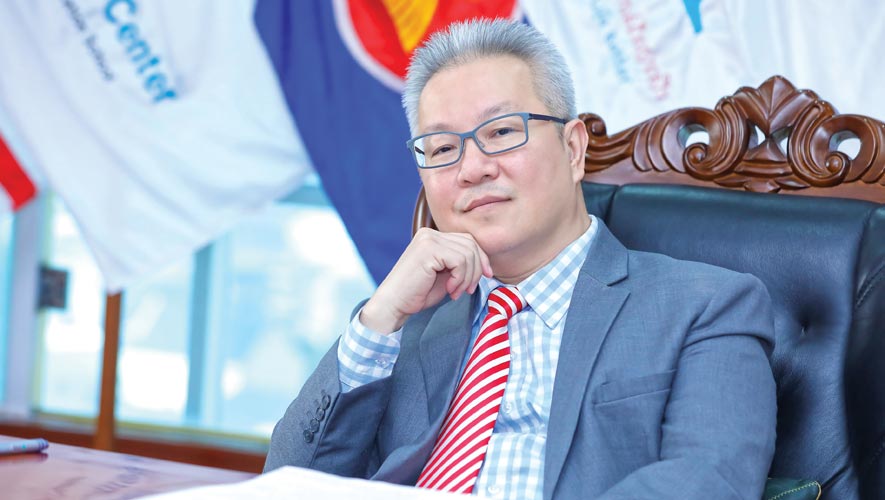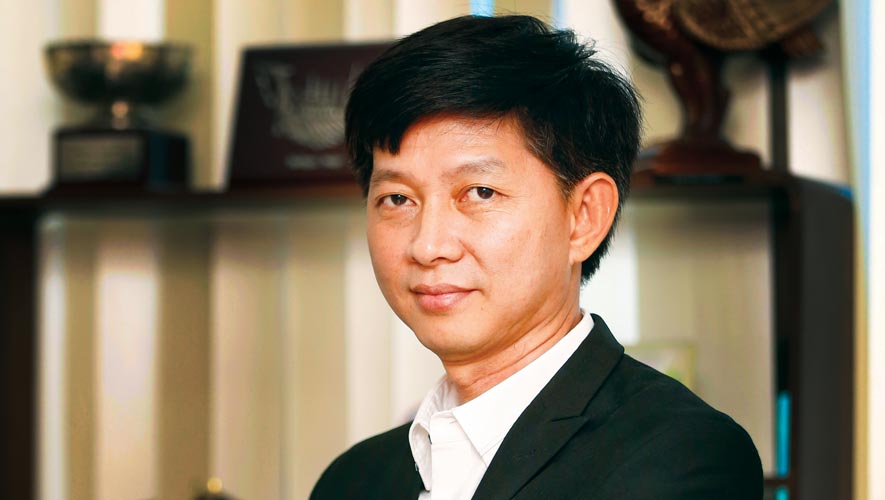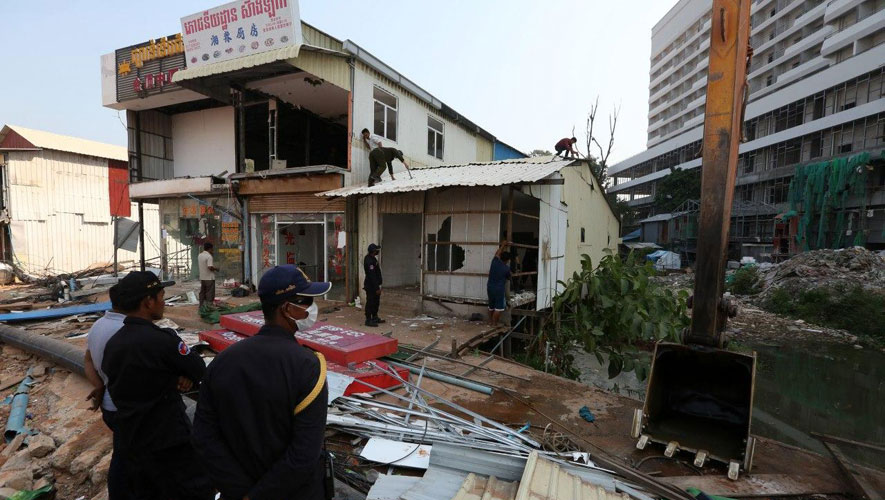The Kingdom’s past might have been one of the reasons the national education system has progressed at a slower pace in comparison with its neighbouring countries.
For the latest Cambodian Business news, visit Khmer Times Business
However, as the country develops – particularly in the last decade – its education system is also catching up.
According to Oknha Dr Mengly J Quach, momentum is the key to retain such progress. The founder, chairman and chief executive Officer of the Mengly J Quach Education (MJQE) also believes that quality education is what Cambodia needs to propel itself higher as a nation.
“It is a fact that education is fundamental in any nation-building efforts. However, what would help Cambodia is high quality education. This means having learning centres with adequate resources – from infrastructure, to finance, school syllabus, extracurricular activities and even faculty members,” he said.
Having been one of the major key players in the Cambodian private education sector for the past 14 years, MJQE has successfully enriched more than 40,000 students with its all-encompassing education modules.
The company, which operates Aii Language Centers (Aii) and American Intercon Schools (AIS), was also recognised by the Ministry of Education, Youth and Sport for its remarkable achievements. These include having the highest pass rates in the National High School Exit Examinations for five years in a row and winning a number of local and international public-speaking competitions.
“We believe in laying the best possible foundation for our students. Aside from academic excellence, we strive to provide a conducive environment that will allow students to unleash their true potential.”
“We try to set an example to other education providers by demonstrating what quality education means to us. A school is not just a space where students come to be lectured. It is a place where they can have fun, build friendships, polish leadership skills, speak their mind and be confident,” he said.
Delving deeper into the topic, Dr Quach said the tried-and-true method for MJQE includes the freewill environment that it employs, which was inspired by Western methods of teaching.
“It was hard to make the shift from traditional teaching to this new methodology because Cambodians in general are timid, shy and pretty set in their own ways. But after years of implementation, our students are groomed to confidently communicate and participate in group activities.
“This is the impact that we can already see. Such an environment boosts students’ self-esteem so they become more brave and confident. We helped to create a sense of ownership and belonging. They also get more chances to take charge of a situation and prove their own capabilities.
“We hope by instilling these qualities, our students will adapt better to whatever challenges they may face in the future,” he said.
He stressed, however, that there must be a continuation of the same level of education at the tertiary level.
Quach added that the company is very enthusiastic to expand its services to cover higher education, if the government would review its policy on university licence issuance.

“We actually had a higher education institute four years ago and it ran for about one year before the policy was changed by the new minister. He announced the closures of several private tertiary education providers including us due to the fact that there are already too many public universities,” he said.
He suggested that the government should re-evaluate that policy to allow a free market and to implement a strict enforcement on the level of education provided at all existing universities.
“A free market would do good for countries with a healthy democracy because it allows healthy competition. Those unable to ensure a high standard of education should be closed while those that produce stellar students should be lauded. The government should really monitor this,” he said.
“The only way for a country to grow is by having a good education system. Without a strong base of education, the people’s intellect and ability to respect and value the rule of law is almost non-existent. This is what Cambodia is facing right now, sadly.”
He said if given the opportunity to revive its higher education institute, MJQE will strive to fill the market gaps by providing niche subjects that could ensure wide-ranging job opportunities for its graduates.
“The existing universities are focusing on courses related to white-collar and some basic blue-collar industries that are skills Cambodia does not need anymore. We are clearly lacking the middle-ground workforce, the in-betweens. We need to delve into niche areas such as advanced farming, waste processing and food manufacturing.
“What about the pink-collar industry? The services sector is very important for the nation’s economy. We don’t have enough skilled professionals to help train students in this sector. We cannot just depend on real estate development or health sciences, for instance.
“As an education provider, MJQE wishes to change the mindset of the youths. We want them to see a world that is beyond the white-collar and blue-collar workers. Allow us to do so by reinstating the higher education licence,” he says.
MJQE was founded in 2005. It maintains and will strive to empower students to achieve their goals, find success and make inspiring contributions to the global community. Quach said MJQE will continue to utilise creative, innovative and critical thinking skills in the classroom to make a difference for future generations.
“Everyone dreams and fights for something. For me, I want to help my people. I want them to be able to live harmoniously, socially and economically equal by all means. I vow to not stop as long as I live. I dedicate my life to it,” he says.
MJQE says on its website it wants to educate the Cambodia people through quality teaching using state-of-the-art facilities to enhance the learning experience of students, empowering them to make inspiring contributions to the global community.
Anith Adilah Othman is a Contributing Writer, Capital Cambodia




